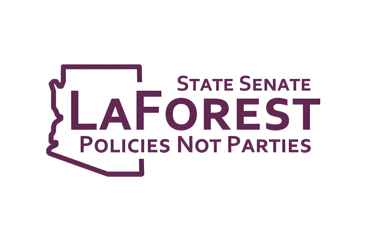IMPLEMENT FINANCIAL REFORMS
IMPROVING THE GOVERNANCE MODEL - Arizona’s public finance management system is in urgent need of reform. A fundamental conflict exists between agency leadership, focused on achieving programmatic outcomes, and finance officers, who are tasked with managing limited resources and ensuring legal and fiscal compliance. Unlike the private sector, where the profit motive helps align operations with financial discipline, the state lacks a built-in incentive to ensure sound fiscal management. While increased transparency and oversight are helpful, they are not sufficient to resolve this internal tension. A more effective solution is structural. I propose consolidating all agency finance leaders into a unified financial management team that reports directly to the Arizona Department of Administration (ADOA). This model already exists for functions like Human Resources and Procurement and has proven effective in standardizing practices and improving oversight. This reform would strike the right balance between enabling agencies to pursue their missions and ensuring that public funds are managed legally, responsibly, and in the public’s best interest. It’s time to bring Arizona’s financial governance in line with best practices, because good government starts with good financial stewardship.
PROVIDING LEGISLATIVE OVERSIGHT - Appropriations are legal authorizations to spend public funds, and they are essential to the proper functioning of state government. Each year, the Legislature passes an appropriations bill that includes supplemental funding requests, designed to help agencies make it through the remainder of the fiscal year. However, when the budget is passed at the last minute, it often means that agencies have been operating for months without the necessary fiscal authorizations, creating legal and operational uncertainty. When elected, I will work to ensure that supplemental funding requests are considered separately from the appropriations bill for the following fiscal year. This approach will promote transparency, ensure that legally required funding notifications are met, and provide policymakers with a clearer opportunity to examine the circumstances that led to the shortfall. It also enhances legislative oversight, allowing for a more informed evaluation of how agencies are managing their budgets. Furthermore, I will propose legislation requiring any agency that receives supplemental funding for day-to-day operations to undergo a financial audit. This will ensure that public funds are being spent responsibly and that systemic issues contributing to recurring shortfalls are identified and addressed.
REDUCING THE SKILLS GAP - Government finance is distinct among administrative fields; its accounting rules and standards are unlike those used in the private sector. As a result, professionals entering public finance roles face a steep learning curve. Compounding this challenge is the growing wage gap: entry-level salaries for accounting graduates in the private sector far exceed what the state is currently able to offer. These factors have made it increasingly difficult to recruit and retain qualified individuals with the specialized knowledge needed to manage public funds effectively. To address this, I propose the creation of state-funded certificate programs in Government Finance and Accounting, offered at no cost to students through Arizona’s community colleges. These one-year programs would provide targeted, practical training in public sector accounting principles, budgeting, and financial reporting. Investing in education tailored to public service is a proactive, cost-effective step toward building a more capable and resilient state workforce.
MODERNIZING GOVERNMENT OPERATIONS - Government processes are notoriously outdated, and Arizona is no exception. It has been just over a decade since the state finally moved away from DOS-based accounting systems and paper-based administrative tasks. While some modern systems have been implemented since then, Arizona continues to lag behind the private sector in adopting proven, cost-saving technologies. A clear example is the failure to implement automation for invoice processing, a basic technology that has been standard in the private sector for years. Projects like this are low-cost, low-risk, and deliver high-impact results: they reduce human error, streamline operations, and lower staffing costs. When elected, I will champion the appropriation of funds toward practical, high-return technology initiatives that immediately benefit Arizona taxpayers. By modernizing outdated systems and investing in automation, we can improve the performance of state agencies, reduce waste, and ensure that the government works more efficiently and effectively for the people it serves.
